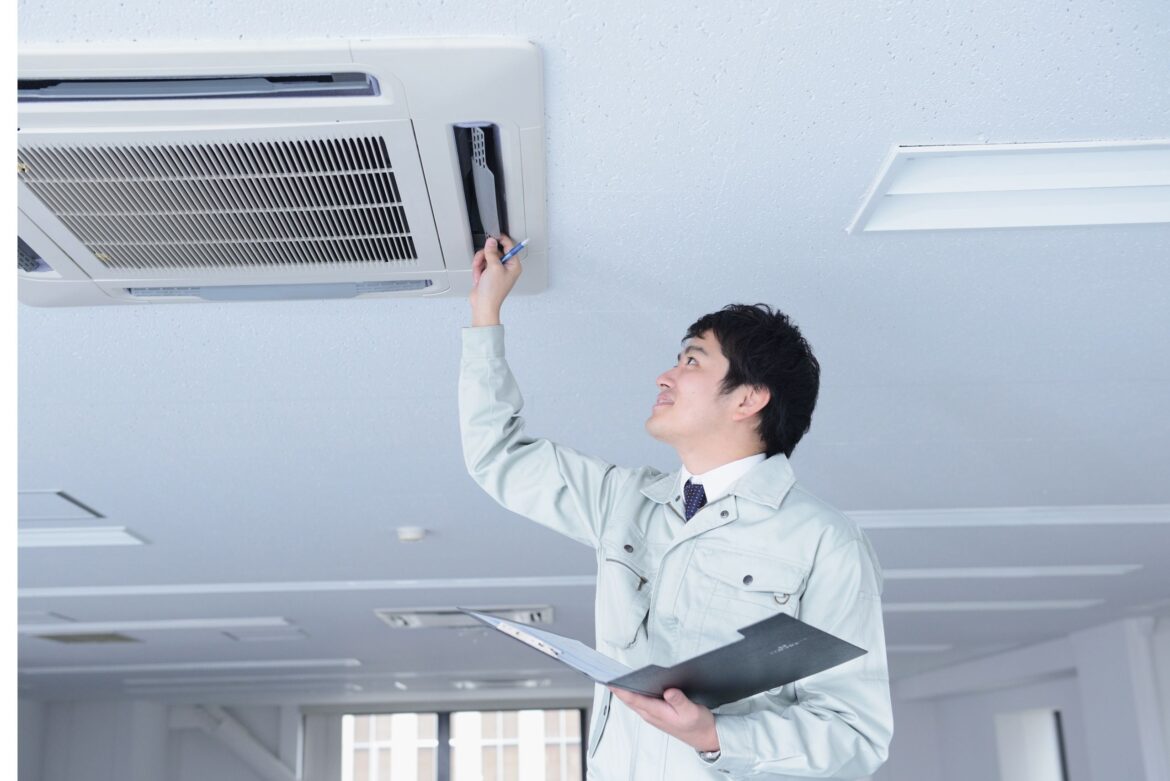
South African Call Centres and Open Plan Offices
In the bustling economic landscape of South Africa, call centres and open-plan offices are productivity powerhouses, humming with the energy of a concentrated workforce. But what if the very air keeping those operations running smoothly is, in fact, silently undermining them? The truth is, the air within many high-density South African workplaces poses a hidden threat, impacting everything from employee health and morale to the bottom line. It’s time to talk about Indoor Air Quality (IAQ) testing, and emissions testing companies, not as a luxury, but as a non-negotiable cornerstone of a thriving business.
The Invisible Enemy: Unique IAQ Challenges in South African Workplaces
South Africa’s unique environmental factors, coupled with the inherent nature of high-density workspaces, create a perfect storm for compromised indoor air quality. We’re not just talking about the occasional whiff of burnt toast from the kitchenette. We’re facing a cocktail of contaminants that can seriously dampen spirits and output:
- The Urban Haze: South African cities, unfortunately, grapple with significant outdoor air pollution, often exacerbated by industrial emissions, vehicular traffic, and even domestic fuel burning in certain areas. This polluted outdoor air frequently infiltrates buildings through ventilation systems or open windows, bringing its unwelcome baggage indoors.
- The Sneeze-and-Cough Symphony: In call centres and open-plan offices, people are packed in tighter than sardines in a can. This close proximity, while fostering collaboration, is also a prime breeding ground for airborne pathogens – viruses, bacteria, and allergens. Think of it as a microscopic mosh pit where illnesses can spread with alarming efficiency.
- The Chemical Caper: From cleaning products and office equipment (printers, copiers) emitting Volatile Organic Compounds (VOCs) to new furniture off-gassing formaldehyde, the very tools and materials that furnish a modern office can contribute to a toxic indoor environment. It’s like having a silent, invisible villain releasing harmful gases into your workspace.
- The HVAC Head-Scratcher: Heating, Ventilation, and Air Conditioning (HVAC) systems are designed to regulate indoor air, but if not properly maintained, they can become a significant source of pollution. Dust, mould, and other contaminants can accumulate within ducts, recirculating unhealthy air and turning your climate control into a contaminant conveyor belt.
- The “Sick Building Syndrome” (SBS) Saga: This isn’t just a catchy phrase; it’s a recognised phenomenon where occupants experience acute health and comfort effects that appear to be linked to time spent in a building, with no specific illness or cause identified. Symptoms like headaches, fatigue, dizziness, and difficulty concentrating are all too common in offices with poor IAQ. Imagine an entire team feeling perpetually “Monday morning” even on a Friday afternoon!
The Heavy Toll: Productivity, Health, and the Bottom Line
The impact of poor IAQ is far from benign. It directly translates into tangible costs for businesses:
- Productivity Plunge: Studies consistently show a direct correlation between good IAQ and enhanced cognitive function. Poor air quality can lead to decreased concentration, slower processing speeds, and an increased likelihood of errors. When your agents are struggling to focus on calls or your team is battling brain fog, your business is operating at a fraction of its potential. One Harvard University study even found that employees showed lower cognitive function when indoor air quality was poor, taking longer to perform tasks and exhibiting reduced focus.
- Absenteeism Avalanche: Beyond sluggishness, poor IAQ contributes to a higher incidence of respiratory illnesses, allergies, and even more serious long-term health issues. When your staff is constantly battling colds, flu, or exacerbated asthma, sick leave skyrockets. This leads to staffing shortages, increased operational costs, and a constant drain on resources as you scramble to cover shifts.
- Employee Morale Meltdown: No one enjoys working in an environment that makes them feel unwell. A pervasive feeling of discomfort, irritation, or illness due to poor air quality can significantly impact employee morale, leading to dissatisfaction and even increased staff turnover. Happy, healthy employees are engaged employees. Conversely, those constantly reaching for the paracetamol are likely counting down the minutes until knock-off.
- Reputational Ripple Effect: In today’s interconnected world, news travels fast. A workplace known for its unhealthy environment can struggle to attract and retain top talent. Maintaining a healthy workspace is not just a regulatory obligation; it’s a powerful statement about your commitment to your most valuable asset: your people.
The Apex Solution: Comprehensive IAQ Testing – Your Business’s Breath of Fresh Air
This is where the expertise of emissions testing companies like Apex Environmental becomes indispensable. You can’t fix what you can’t measure, and simply opening a window occasionally isn’t going to cut it. Comprehensive IAQ testing provides the critical data needed to identify the invisible culprits lurking in your air and develop targeted solutions.
Apex Environmental, a leading Approved Inspection Authority (AIA) in South Africa, offers a comprehensive suite of services designed to provide clarity and control over your indoor air environment. Our specialists, armed with state-of-the-art instrumentation, go beyond merely ticking boxes. We perform detailed assessments of:
- Particulate Matter (PM10, PM2.5, TSP): Invisible dust particles, allergens, and other microscopic debris can irritate respiratory systems and trigger allergic reactions. We measure their concentration to understand the airborne burden on your employees.
- Volatile Organic Compounds (VOCs): These are gases emitted from various solids or liquids, including paints, cleaning supplies, and office furnishings. Many VOCs can cause short- and long-term health problems. We pinpoint their sources and levels.
- Carbon Dioxide (CO2): High CO2 levels are a strong indicator of inadequate ventilation. While not directly toxic at typical office concentrations, elevated CO2 can lead to feelings of stuffiness, drowsiness, and reduced cognitive function – essentially, a collective brain fog.
- Carbon Monoxide (CO): A highly dangerous, odourless, and colourless gas that can be lethal even at low concentrations. While less common in typical office settings, it’s crucial to monitor in areas with combustion sources.
- Temperature and Humidity: While seemingly basic, optimal temperature and humidity levels are vital for comfort and preventing mould growth. Too dry or too humid, and your team won’t be singing your praises.
- Biological Contaminants: Mould spores, bacteria, and viruses can thrive in damp or poorly ventilated areas. Our testing helps identify their presence and assess the associated risks.
Our methodologies align with stringent international standards, including those from the United States Environmental Protection Agency (US-EPA) and generally accepted guidelines, ensuring accuracy and reliability. We are registered in accordance with the Occupational Health and Safety Act (Act 85 of 1993) and accredited by the South African National Accreditation System (SANAS) to ISO/IEC 17020:2012. This means you’re not just getting a report; you’re getting data you can trust, backed by a commitment to the highest quality standards.
Investing in Air: The Returns are Undeniable
Think of IAQ testing not as an expense, but as a strategic investment with significant returns:
- Healthier Workforce: Reduced instances of respiratory illness, allergies, and “sick building syndrome” symptoms mean fewer sick days and a happier, more energetic team.
- Boosted Productivity: When employees can breathe easy and think clearly, their focus, efficiency, and decision-making abilities improve dramatically. Imagine the cumulative gains across an entire call centre!
- Enhanced Morale and Retention: A visible commitment to employee well-being fosters loyalty and creates a desirable work environment, helping you attract and retain top talent in a competitive market.
- Regulatory Compliance and Risk Mitigation: Proactive IAQ testing ensures your business complies with relevant South African occupational health and safety regulations, minimising the risk of penalties and legal issues. It’s about being on the right side of the law – and common sense.
- Long-Term Cost Savings: Reduced absenteeism, improved productivity, and lower healthcare costs directly contribute to your bottom line. Investing now prevents far greater costs down the line.
Don’t Hold Your Breath: Act Now
The air in your call centre or open-plan office is not just air; it’s a critical component of your operational efficiency and employee well-being. Ignoring indoor air quality is like trying to run a marathon on a flat tire – you’ll eventually grind to a halt.
For South African businesses striving for peak performance and a flourishing workforce, comprehensive indoor air quality testing is no longer optional. It’s a fundamental step towards creating a healthier, more productive, and ultimately more profitable environment.
Apex Environmental stands ready to be your partner in this vital journey. Let us help you identify the invisible, understand the impact, and implement solutions that allow your team to truly breathe easy and work productively. Because when your air is clear, your business outlook is even clearer.
Contact Apex Environmental today for a comprehensive indoor air quality assessment and let’s get your workplace breathing freely.








